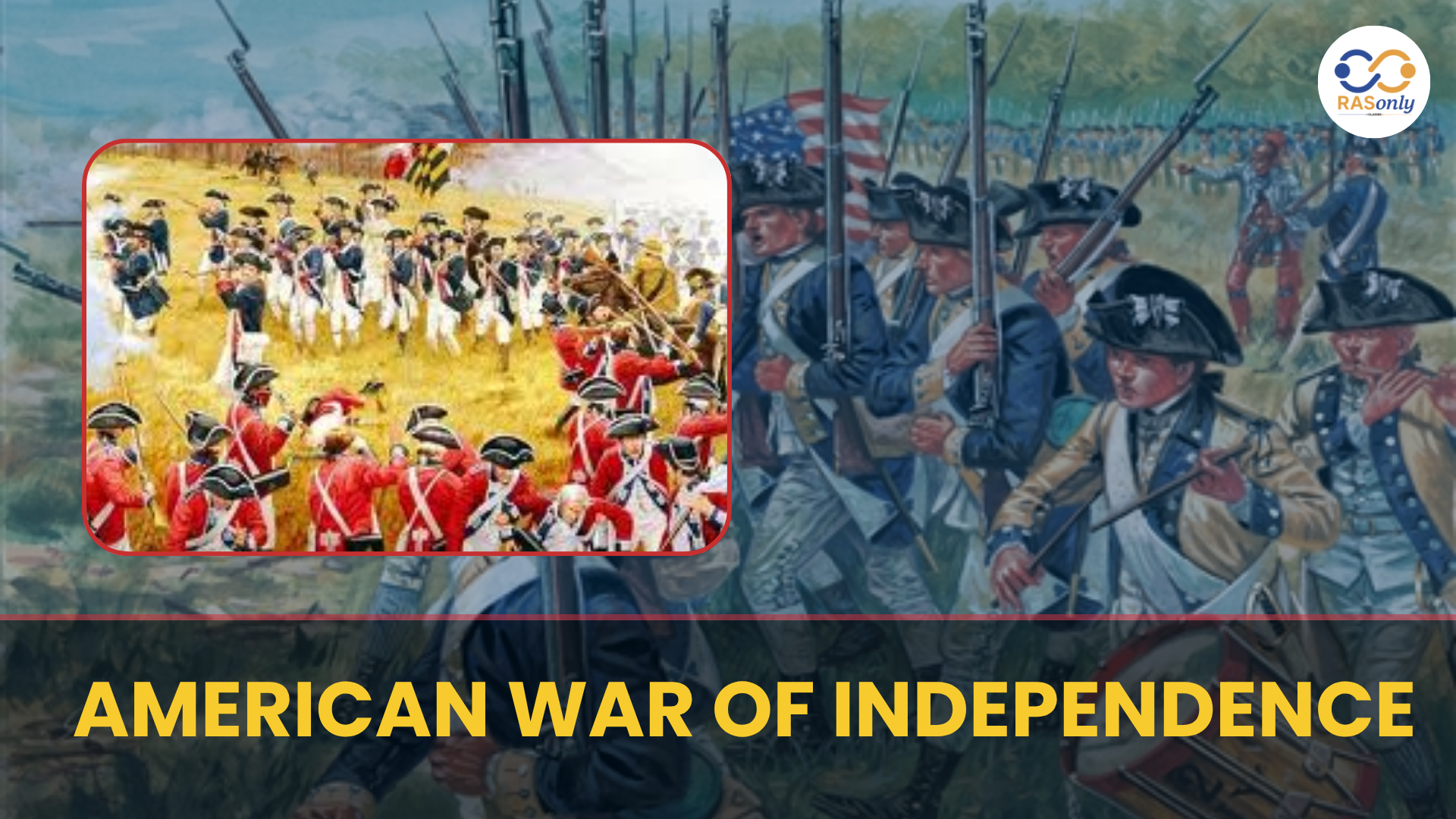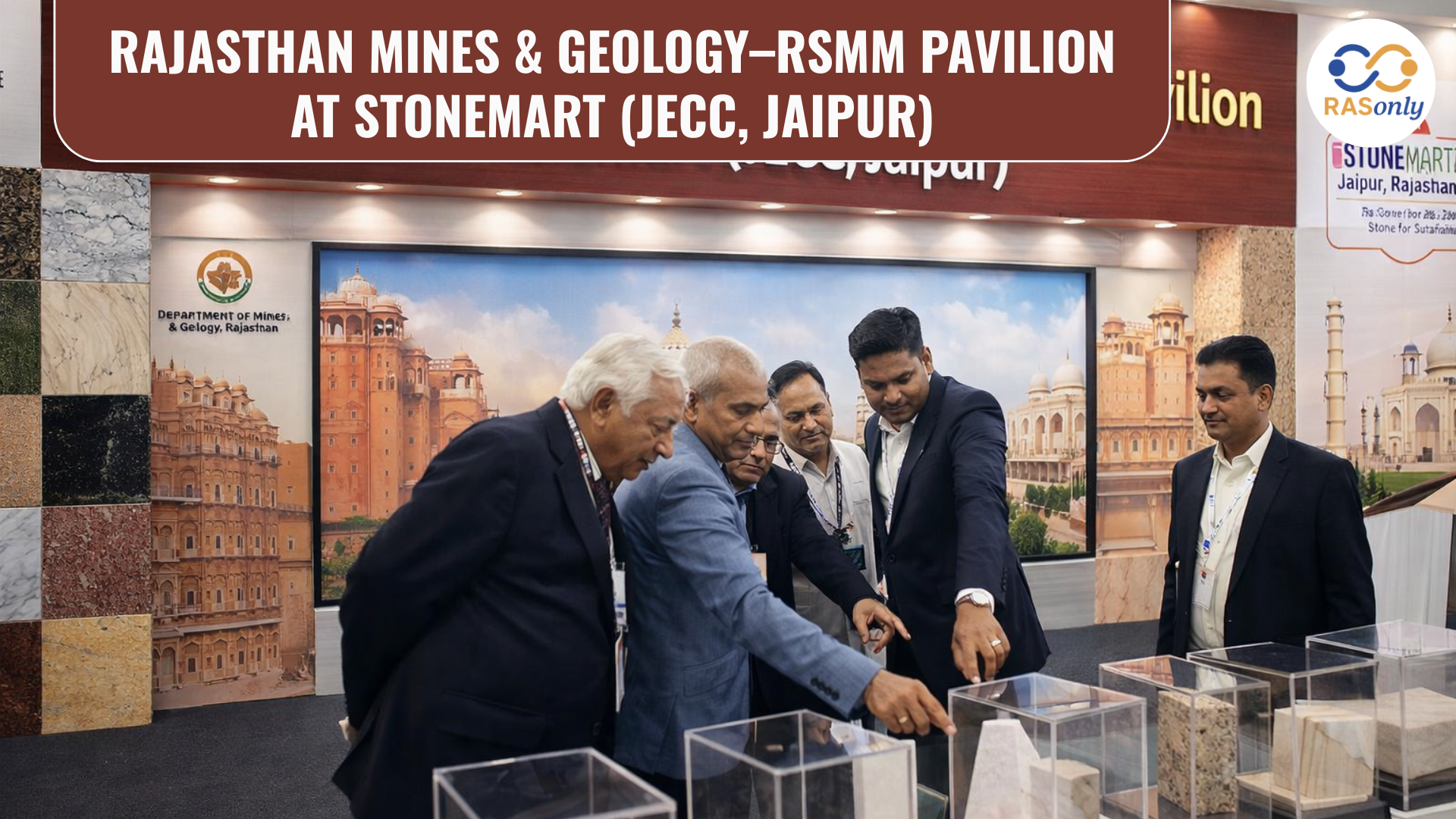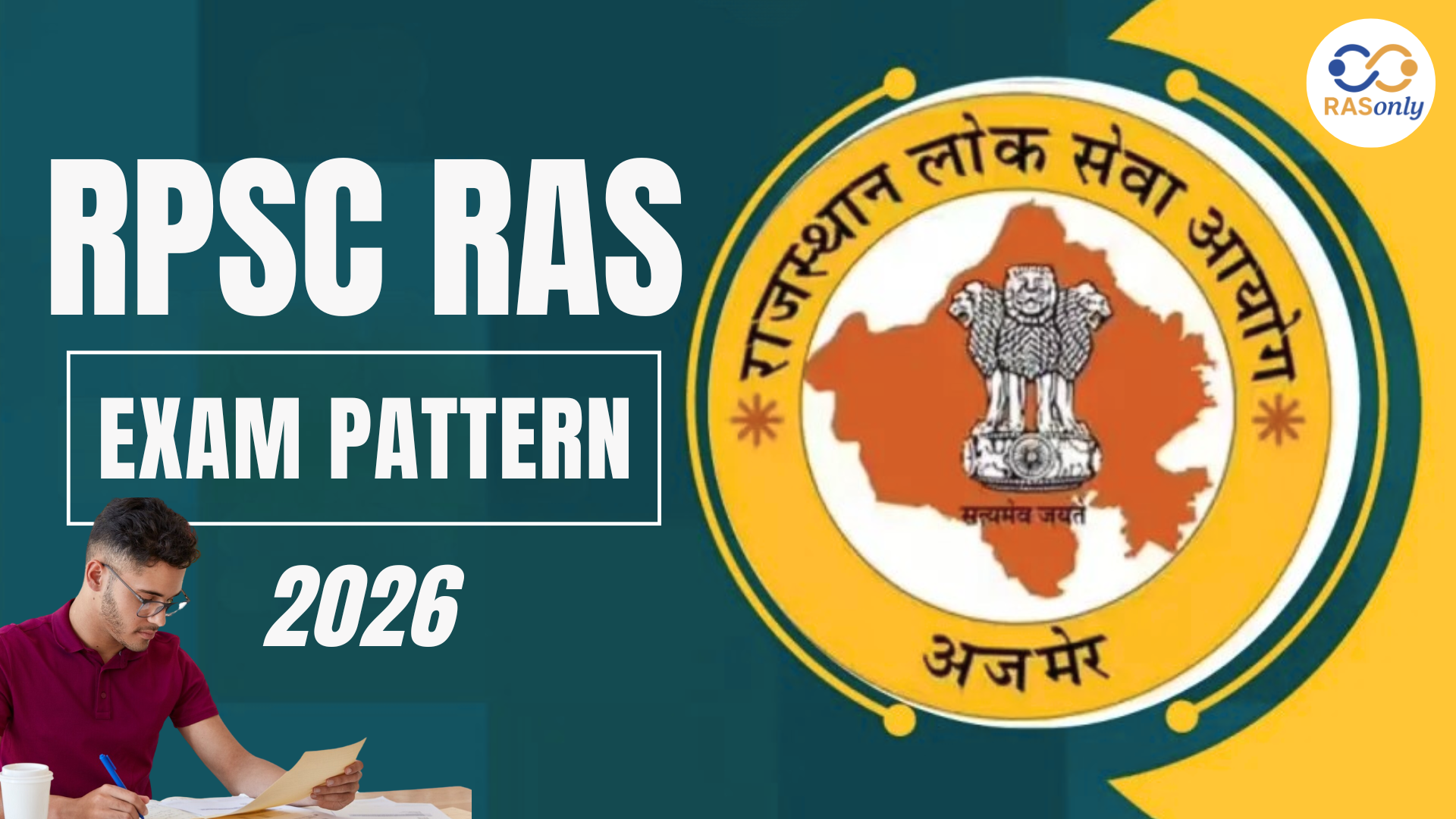RPSC RAS 2026 Subject Wise Exam Pattern for Prelims, Mains & Interview Details
- >
- RAS Preparation Resources
- >
- The American War of Independence
The American War of Independence

Get in Touch with RASonly!


The American Revolution (1763-1783) was a historic event in which the 13 American colonies fought imperialism of the British. This war led to the formation of the United States of America. The revolution reconstituted the notion of governance and civil rights enthused by economic exploitation, ideological enlightenment, and colonial opposition. It brought forth republicanism, a written constitution and motivated the movements around the world against colonialism. The revolution did not only tear down the British colonial rule in America but also affected the world movements of democracy. It was the start of contemporary constitutionalism and federalism.
Key Points for RAS Mains
Historical Context
- Period of time: 1763 (after Seven Years War) to 1783 (Treaty of Paris).
- Nature: anti-colonial, political revolution city, founded the first modern democratic Republic.
- Leaders involved: George Washington, Thomas Jefferson, Samuel Adams, Benjamin Franklin.
Reasons of American Revolution
- Economic Exploitation
- Mercantilism: The British policies were directed towards favouring the mother country based on the management of the trade with the American countries.
- Taxation burden after the War: the impact of the seven years war was that Britain attempted to recover costs of sustaining expenses through taxation of colonies.
- Criminal: Sugar Act (1764) Stamp Act (1765), Townshend Acts (1767).
- Political& Legal Dissatisfaction
- No Taxation Without Representation: British Parliament had not a county representation.
- Salutary Neglect: Previous British indulgence caused the American faith in independence.
- Ideological Awakening
- The enlightenment thinkers such as Thomas Paine ( Common Sense ) and Benjamin Franklin advocated liberty, equality and republicanism.
- Expansion of liberalism because of multi-ethnic colonial society.
- Social and Regional Mobilisation
- The creation of the groups such as Sons of Liberty and Daughters of Liberty.
- Forms of protest: Boston Tea party (1773), Boston Massacre (1770)
Key Events Timeline
|
Year |
Event |
|
1764 |
Sugar Act imposed |
|
1765 |
Stamp Act and resistance begin |
|
1770 |
Boston Massacre |
|
1773 |
Boston Tea Party |
|
1774 |
First Continental Congress |
|
1775 |
Second Continental Congress; Olive Branch Petition rejected |
|
1776 |
Declaration of Independence (July 4) |
|
1778 |
France joins American side |
|
1781 |
British surrender at Yorktown |
|
1783 |
Treaty of Paris ends the war |
The declaration of independence (1776)
- The text was written by Thomas Jefferson.
- Proclaimed all men equal and gave them the right to freedom.
- Designed the start of a protest and the beginning of a full-scale revolution.
- Any War of Independence (1776 1783)
- Under the command of mobilizer-in-Chief George Washington.
- In 1778, France gave them military and economical assistance.
- Great triumph: British lost the war at Yorktown (1781).
- The war was officially over through the Treaty of Paris (1783).
Treaty of Paris 1783 Highlights
- Acceptance of the United States of America as a sovereign state.
- Regions went as far as the Mississippi River.
- France and Spain benefited through the acquisition of territories (e.g. Florida to Spain).
- In other areas, England maintained the pre-war status quo.
Impact of American Revolution
- A. US-based
- Dismissal of Loyalists: about 80,000 loyalists run off.
- Mercantilism is over: emergence of capitalist commerce and worldwide connections.
- First in the world with: Written Constitution (1789):
- The civil liberties safeguarding of the 1791 Bill of Rights.
- Democrat and republican principles.
- Emerging of Federalism: De-centralization of authorities between federal and state.
- B. Worldwide Repercussion
- Inspiration to other Movements:
- French Revolution (1789)
- Latin Revolution The Latin American revolutions History
- Indian liberty movement (Gandhi envied American struggle)
- Crisis of Colonial Legitimacy: Invincibility of British Empire.
- Democratisation of Republicanism and personal rights world wide.
- Educational Reforms in the newly independent America grew so as to facilitate informed citizenry.
Importance of American Revolution
- It is the first successful anti-colonial revolution.
- Brought new concepts of contemporary democracy, constitutionalism, and rights of individuals.
- Assists in knowing how intellectual discourse, mass mobilisation as well as legal resistance can topple imperialism.
- Seed of later antiterrorism freedom movements and liberal-democratic philosophy in the rest of the globe.
Conclusion for RPSC
The American Revolution was much more than a war of independence, it was a radical rethinking of government and rights and liberty.
Also Read: Revolutionary Movements in India During Independence
FAQs for RPSC RAS
Post Category
- RAS Salary
- Result
- RAS Admit Card
- RAS Job
- RAS Cutoff
- Preparation Tips
- RAS Answer Key
- RAS Exam Analysis
- RAS Syllabus
- RAS Previous Year Papers
- RPSC RAS Exam Pattern
- RAS Interview
- RAS Mains Exam Date
- RAS Vacancy
- RAS Test Series
- RAS Best Books
- RAS Preparation Resources
- RAS Coaching Centre
- History
- Polity
- Geography
- Economics
- Science
- Art and Culture
- RPSC RAS Application Form
- RPSC RAS Notification
RASonly Interview Guidance Program

Mr. Ashok Jain
Ex-Chief Secretary Govt of Rajasthan
- IAS officer of the 1981 batch, Rajasthan cadre.
- Passionate about mentoring the next generation of RAS officers with real-world insights.
- Got retired in Dec 2017 from the post of Chief Secretary of the state of Rajasthan.

Mr. Guru Charan Rai
Ex-ASP / SP in Jaisalmer
- Guru Charan Rai, IPS (Retd), retired as Inspector General of Police (Security), Rajasthan, Jaipur in 2017.
- Served as ASP and SP in Jaisalmer, Nagaur, Sri Ganganagar, Sawai Madhopur, Dausa, Sikar, and Karauli.
- He also held key positions as DIGP and IGP in the Law and Order division.

Mr. Rakesh Verma
Ex-IAS Officer, B.Tech, MBA, and M.A. (Economics)
- IAS officer of the 1981 batch and retired in Chief Secretary Rank.
- Civil servant of high repute and vast experience.
- Has been teaching UPSC CSE subjects for the last six years.
Related Post
Daily Current Affairs for RAS Exam Preparation 2026

Rajasthan Pavilion Shines at Stone Mart Jaipur 2026
February 07, 2026
Rajasthan Achieves 3,000 MW Under PM-KUSUM Scheme
February 07, 2026
Gram Utthan Shivirs Strengthen Rural Governance in Rajasthan
February 07, 2026
Jaipur Badminton: 72-Minute U-15 Final Creates Record
February 06, 2026👉🏻 Register Today to Join Classes! 👍🏻
- Team RASOnly -
🎯 Benefits of RASOnly Coaching:
- ✅ 1:1 Mentorship with RAS Officers
- ✅ Experienced and Expert Faculty
- ✅ Free Library Access
- ✅ Daily Minimum 4 Hours Must
- ✅ Comprehensive Study Material
- ✅ Regular Tests & Performance Analysis
- ✅ Personalized Guidance & Doubt Solving
- ✅ Online & Offline Class Options
- ✅ Affordable Fees with Quality Education
Key Highlights:
- 👉🏻 3-Day Refund Policy
- 👉🏻 New Batch Starting from 04 August
- 👉🏻 Registration Amount: Only ₹1000









